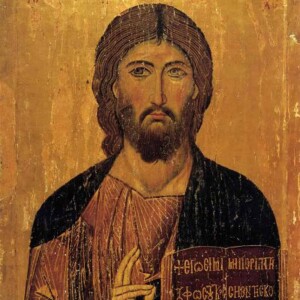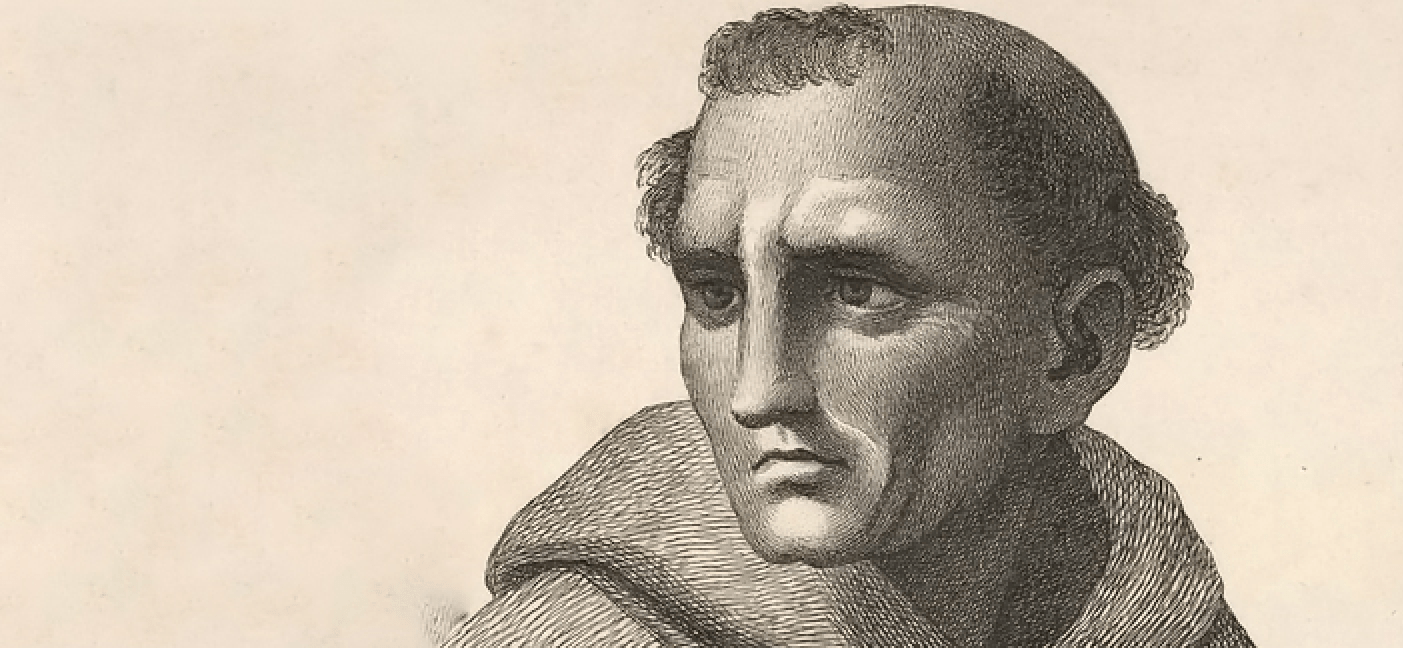
The History of the Christian Church
Religion & Spirituality:Christianity

This episode of CS is titled, “No Dunce Here.”The Franciscans had an answer to the Dominican Scholastic we looked at in the previous episode. In fact, Aquinas’ Franciscan counterpart lived at the same time. His name was John Bonaventure.Born in Tuscany in 1221 as John Fidanza, he became known as Bonaventura when he had a miraculous recovery from a grave illness as a child of four. Upon regaining his health, his mother announced, “Bonaventura = Good fortune” and the name stuck.While Aquinas was predominantly a theologian, Bonaventure was both theologian and accomplished administrator in the affairs of the Franciscans. Where Thomas was precise but dry, John was a mystic given to great eloquence. If Aquinas was prose, Bonaventure was poetry.Bonaventure joined the Franciscans and immediately excelled in his studies. He spent 3 years in Paris studying under the Scholastic scholar Alexander of Hales. Alexander paid his pupil a huge compliment when he said that in Bonaventure, “Adam seems not to have sinned.”Finishing his studies in Paris, he stayed to teach, filling the spot of John of Parma when he took on the leadership of the Franciscans. He was only 26. Anyone would have been in over their head at that age since Bonaventure became the leader of the Franciscans when they ere being split by the fracture we talked about in an earlier episode. He took a middle position between the two parties and was able to negotiate an uneasy peace. It was a brutally hard assignment, but Bonaventure pulled it off with aplomb and earned the title of 2nd founder of the order.The entire idea of mendicancy came under assault during his term at the helm of the Franciscans. He penned a tract that silenced the opposition and reinforced support for the Mendicants.At the direction of the first Franciscan General Council at Narbonne in 1260, he wrote the Legend of Francis, the authoritative Franciscan account of the Order’s founder.In 1273, he was made cardinal of Albano, Italy. He died in Lyons while attending a Church council in 1274. The Pope performed extreme unction for him and his funeral was attended by dignitaries from all over the Christian world. He was declared a “Doctor of the Church” in 1587, one of the highest honors the Roman Church can bestow.Dante, a fierce critic of sham religion, gave Bonaventure great honor by placing him beside Thomas Aquinas.These two will always be considered by students of history side by side. One historian of mediaeval theology calls them the illuminating stars on the horizon of the 13th C. Aquinas had the sharper mind, but Bonaventure the warmer heart. Maybe this is why each joined their respective orders; Thomas the Dominicans and John the Franciscans.Bonaventura enjoyed great popularity as a preacher. Being a poet, his sermons were far more eloquent than his peers.When Bonaventure wrote, like Aquinas, he turned his mind to theology and provided much to the cleaning up of the thoughts of the day. To give an idea of what kinds of things the Scholastics wrestled with, here are some of the topics Bonaventure weighed in on. . . .The Trinity, creation, sin, the Incarnation, grace, the Holy Spirit, sacraments, and the Afterlife. Having dealt with these basic topics he engaged a whole host of other subjects more popular to discuss. Things like . . .
view more
- Could God have made a better world?
- Could He have made it sooner than He did?
- Can an angel be in several places at the same time?
- Can several angels be at the same time in the same place?
- At the moment of his creation was Lucifer corrupt?
- Did he belong to the order of angels?
- Is there a hierarchy among the fallen angels?
- Do demons have foreknowledge of contingent events?
More Episodes
19-Jerónimo
 2019-11-06
2019-11-06
 2019-11-06
2019-11-06
18 Ermitaños
 2019-03-07
2019-03-07
 2019-03-07
2019-03-07
17-Que Diferencia hace un Siglo
 2019-02-24
2019-02-24
 2019-02-24
2019-02-24
16-Salen las Navajas
 2019-01-18
2019-01-18
 2019-01-18
2019-01-18
15 Contra Munda
 2018-12-02
2018-12-02
 2018-12-02
2018-12-02
14 Manteniendo un Registro
 2018-10-02
2018-10-02
 2018-10-02
2018-10-02
13 Que tan cerca?
 2018-10-02
2018-10-02
 2018-10-02
2018-10-02
12 El Baile de los Caídos
 2018-05-31
2018-05-31
 2018-05-31
2018-05-31
11-Que les llamaremos?
 2018-05-16
2018-05-16
 2018-05-16
2018-05-16
10-Afinando los Detalles
 2018-04-24
2018-04-24
 2018-04-24
2018-04-24
09 Esforzándose para dar una Respuesta
 2018-04-18
2018-04-18
 2018-04-18
2018-04-18
08 No Exactamente una Disculpa
 2018-04-04
2018-04-04
 2018-04-04
2018-04-04
07 El Árbol se Extiende
 2018-03-17
2018-03-17
 2018-03-17
2018-03-17
06 BOGO
 2018-03-14
2018-03-14
 2018-03-14
2018-03-14
05 Libros
 2018-03-14
2018-03-14
 2018-03-14
2018-03-14
04 Martires
 2018-03-01
2018-03-01
 2018-03-01
2018-03-01
03 Estrategico
 2018-02-28
2018-02-28
 2018-02-28
2018-02-28
02 Tradiciones
 2018-02-28
2018-02-28
 2018-02-28
2018-02-28
01 El Comienzo
 2018-02-28
2018-02-28
 2018-02-28
2018-02-28
Some, Not Others
 2018-01-14
2018-01-14
 2018-01-14
2018-01-14
012345678910111213141516171819
Create your
podcast in
minutes
- Full-featured podcast site
- Unlimited storage and bandwidth
- Comprehensive podcast stats
- Distribute to Apple Podcasts, Spotify, and more
- Make money with your podcast
It is Free
- Privacy Policy
- Cookie Policy
- Terms of Use
- Consent Preferences
- Copyright © 2015-2024 Podbean.com



